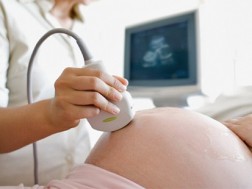
By Janelle Cassola, M.S.W. Candidate
Salem State University
Recently, my professor asked me to reflect on the ways in which I have engaged in ableism as a social work student. While I could not think of a professional instance, I was able to reflect back on my personal life about a time that I did engage in ableism. Recently, I gave birth to my son, my first child, back in January of this year. Toward the beginning of my pregnancy, I believe around week 12, the obstetrician sat me down and started to discuss optional screenings that they could do that would determine whether the baby had any disabilities, such as Down Syndrome. As soon as she started explaining all the different tests, I knew I was going to choose to have at least one done. In the end, I chose one of the least invasive but more accurate tests.
Whenever someone asked why I was getting the test (as I wasn’t high risk, and am on the younger side), I would tell them I just wanted to be able to be prepared. I told them that I wanted to be able to prepare my house or to get necessary equipment or other things that might be needed by my child. However, leading up to the test I began to have dreams about getting ‘bad news’ from the doctor. I also had dreams in which my doctor told me that there was ‘something wrong’ with my baby. I started to realize that it wasn’t my house that I would have to prepare, it would have to be myself! Slowly, I came to the understanding that if I got the news that my child had a disability, I would need some time to process and accept that news. I think that I struggled with the belief that my child would have a ‘lesser life’ if they were born with a disability. In addition, I think that a part of my process would have been going through the grieving process as I would have been grieving the ‘perfect child’ that I imagine many pregnant women imagine when they first find out they are pregnant.
In my readings for my course on social work practice with people with disabilities, I learned how genetic testing connects to the medical model of disability. As my textbook discussed, the testing and the possible results were only presented to me by my medical team through a medical model lens, versus a social model of disability lens. My medical team informed me of the genetic reasoning behind any of the possible disabilities that could be discovered but did not include any information regarding what my child’s life would be like if the test was positive. As Mackelprang and Salsgiver (2015) suggested in my textbook, it would have been beneficial to hear about the lives of people living with some of the disabilities. This could have possibly calmed my nerves as well as avoided my ableist thinking. My hope is that for patients who do have a positive test, their medical team can learn to sit down with them and go into further detail about what a child’s life will and can look like. I think this could help a parent-to-be process that news in a not-so-negative way. I believe that a discussion like this could help patients understand that the only options are not abortion or a child with a ‘lesser life.’
As a social work professional, it is important to always reflect on and examine our own ableism. In our society, we have been witness to countless ableist thoughts and beliefs throughout our lives. These beliefs become the standard way of thinking and affect our interactions with people with disabilities. Therefore, it is essential for a social worker to reflect on their own ableist thoughts and practices in order to be able to change their way of thinking – and practicing! Once the social worker is able to do this work, their practice with people with disabilities has the potential to be so much more valuable.
Janelle Cassola is a candidate for the degree of Masters in Social Work at Salem State University’s School of Social Work. She holds a B.A. in Urban Studies from Worcester State University. She hopes to continue her career in the field of adoption. Ms. Cassola chose to study social work practice with people with disabilities to become better informed of this community, the barriers that they face, and the practice frameworks regarding people with disabilities. Ms. Cassola can be reached at j_cassola2@salemstate.edu or at @disabilitysw on Twitter.
I appreciate how you present this matter without judgment toward the decision to do genetic testing and possible subsequent decisions. The need to integrate a social work lens into medical models is so acute, both in this specific area and so many others; it truly does have the potential to change outcomes. Thanks for your thoughtful reflection and for sharing your experience.
LikeLike
Thank you for taking the time to read my entry and reflect your thoughts, Christina.
LikeLiked by 1 person
Janelle, I teach at SSU in the SSWK. I love this blog. Well-written and well-informed. Thank you for this.
LikeLike